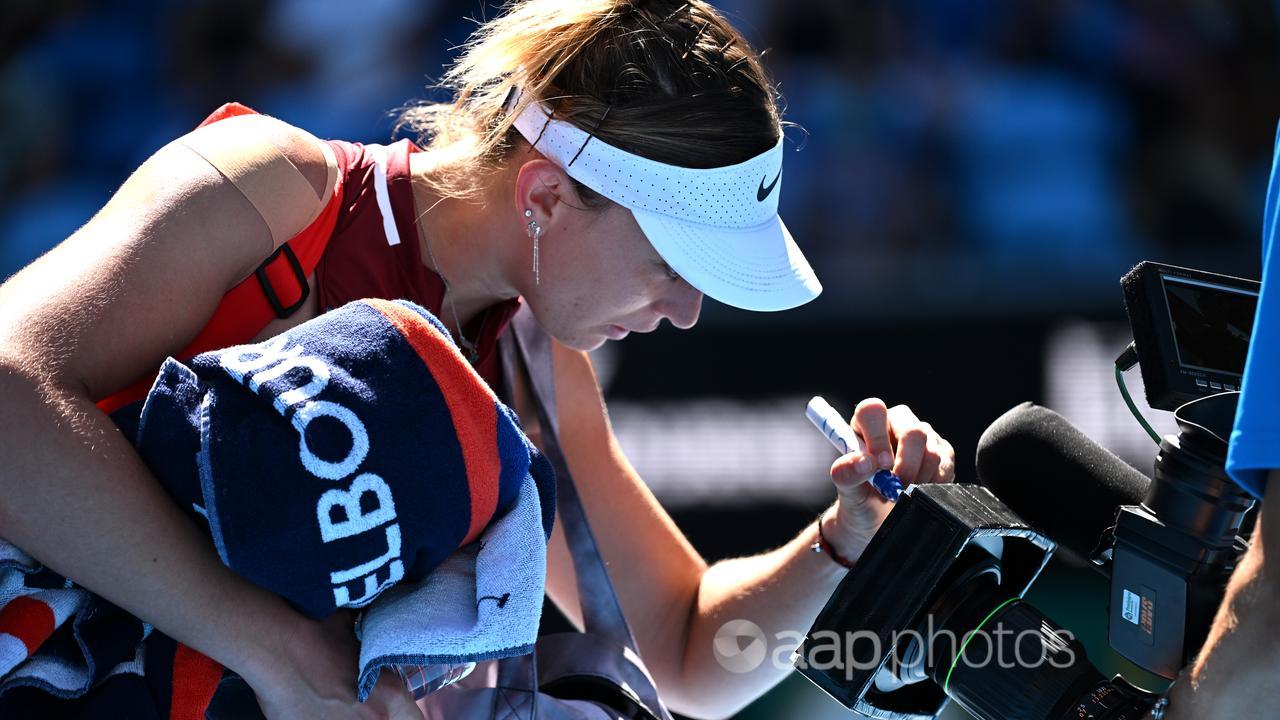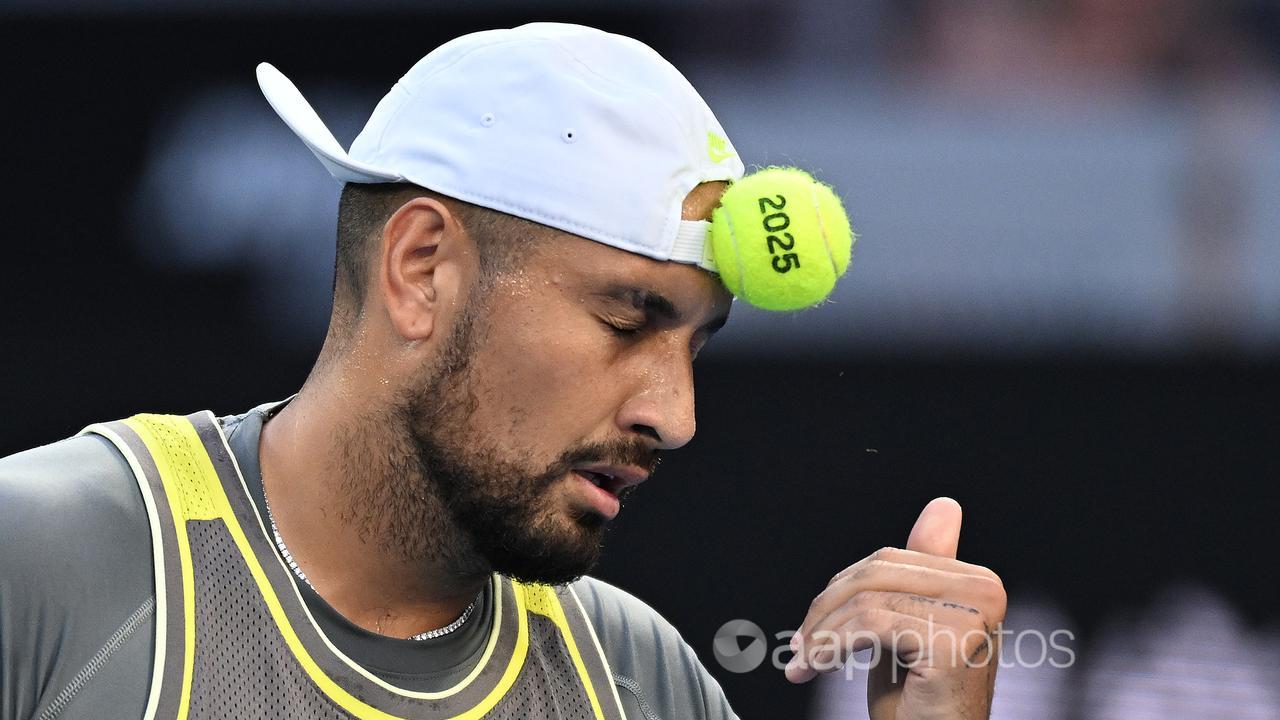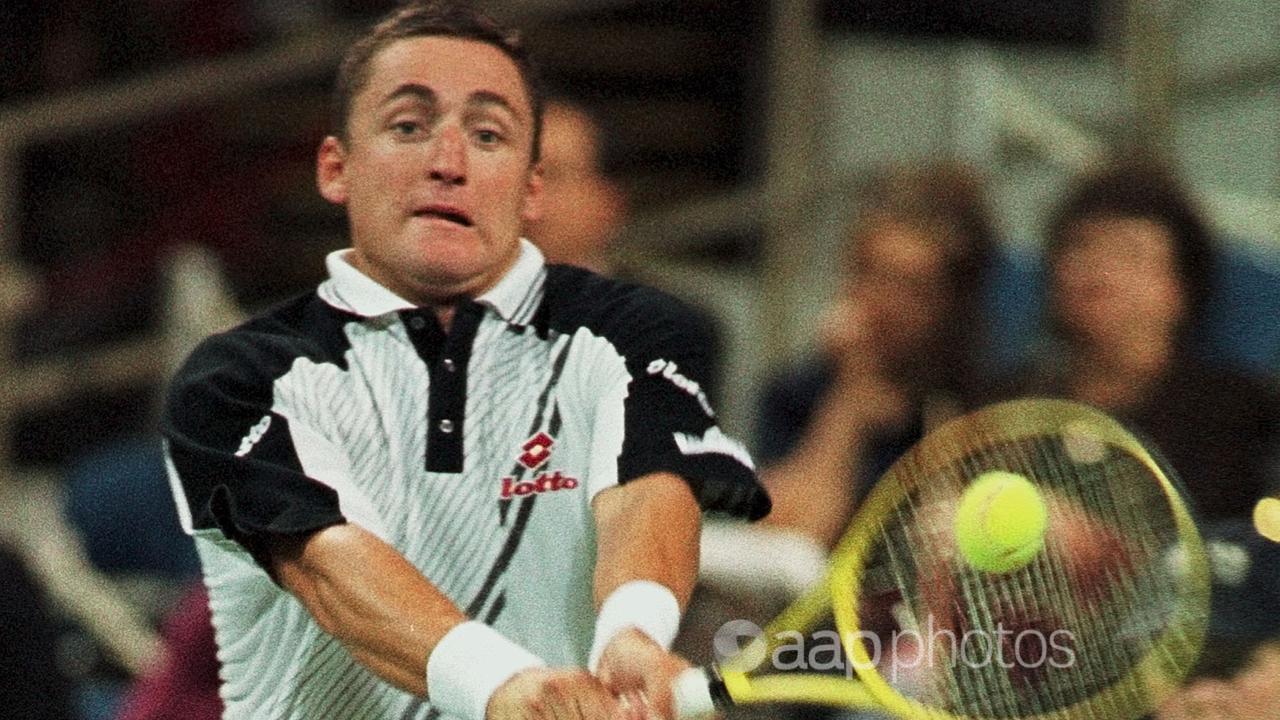One central controlling body is paramount to tennis’s long-term relevance as the sport welcomes increasing Saudi influence rather than run the risk of a devastating, golf-style war.
That is the view of ATP chairman Andrea Gaudenzi, who is steadfast in his belief that his sport’s current seven rulers – the ATP, WTA, ITF and four grand slams – must merge into one.
“Tennis has to come together and unite,” Gaudenzi told AAP in an exclusive interview at the Australian Open.
“We are duplicating CEOs, operations. We’re duplicating efforts.
“It can be a lot more efficient.”
For starters, Gaudenzi estimates tennis’s global media rights to be worth around $US800 million and thinks that revenue could be doubled or even tripled in the next five to 10 years with smarter management.

Now tennis only holds 1.3 per cent of the total sports media market of around $60 billion in 2024.
“We have a huge opportunity in my opinion because we are global,” he said.
“We have men and women and we’re probably one of the strongest women’s sports.
“We have great stars, great athletes, great tournaments but we definitely are under monetised.
“If we were to get together, we can actually design and build a better product and we can actually go to market with the way we sell it.
“I give you an example. If you have a Netflix, an Apple and Amazon that wants to buy out tennis, and we’re global and they’re global, you say, ‘You know what, there’s not a lot of premium sports out there that you can sell in 200 markets’.
“You can’t do that with most of the American sports, and they’re too expensive.”

With phase one of his “One Vision” plan now implemented, Gaudenzi is intent on not taking his eye off the ball as the ATP begins a new era without retired icons Roger Federer and Rafael Nadal.
The Italian is savvy and careful enough to know retaining fan engagement long term is no given, even for the most global of all individual sports.
“And so the goal for me is obviously to try to elevate tennis because we’re dealing with a very strong competition – not only other sports, but music, entertainment, gaming.
“We’re competing with time and attention of consumers, especially the young ones, all ages, and the way we manage our sport with all these different entities, different boards, is going to be really difficult to be able to compete.
“So what I truly believe is that we need one governance, one product, one commercial entity, and a fair formula with the players to deal with the compensation.
“We can’t manage a product now with seven different boards.
“It’s obviously ambitious (to merge), given the history and where we come from. But lots of people never thought we could pull it off internally with the Masters (events) and within our group, and we did.
“So I tend to be an optimistic.”

Entering his sixth year at the helm of men’s tennis, after taking over during the disruptive COVID-19 pandemic, the one-time world No.18 believes the completion of “One Vision” will be “groundbreaking” for tennis.
“Especially the profit-sharing formula,” Gaudenzi said.
“The economic transparency between players and tournaments, which I do believe is building trust between the two groups, and I’m already sensing and feeling the difference in the boardroom.
“Now the second phase is more focused on the T7, let’s say grand slams and WTA trying to get the sport together, which is not an easy task.
“But I’m generally happy and optimistic.
“I wish things would move a bit faster. Obviously it’s extremely difficult to implement change with lots of stakeholders, moving parts, different interests, which I think is the weakness of our sport – fragmentation.”
Managing the threat of the cashed-up Saudis potentially creating a LIV Golf-type rebel circuit is also a priority for the ATP.
Gaudenzi is acutely aware the kingdom could at any time attempt to raid the tennis ranks with eye-watering offers to the game’s superstars, just like they did by luring champion Australian golfer Cameron Smith with a reported $US150 million deal.
“With our current structure, with this fragmentation, we have that vulnerability,” he conceded.
Hence why Gaudenzi’s approach has been to embrace the Saudi powerbrokers.
“I do believe we’ve managed the relationship very, very well,” he said.
“We’ve done the deal with NextGen. We have PIF as a sponsor of our ranking, the WTA Finals in Saudi.
“It’s not a secret that we are discussing the possibility of a 10th Masters event with them.
“They have always come to us with the clear intention of wanting to be a force of good, working with the institution and investing in the sport and helping – not disrupting – and we have welcomed them since the beginning.”
The ATP chief knows awarding Saudi Arabia a Masters 1000 tournament – which he said would not start before 2028 – could be the clincher to avoid a golf-style war.
“That is definitely their goal,” Gaudenzi said.
“I do believe if that happens they can create something unique.
“They can invest lots of money in the infrastructure and they’re going to deliver.
“I mean, we’ve seen how they operate at NextGen and the (WTA) finals.
“They’ve been they’ve done a beautiful job. They invest a lot of money.
“They have the infrastructure. They hire the experts. They’ve treated players very, very well. The hospitality has been amazing.
“So I personally think they’re going to do a great job.”



















